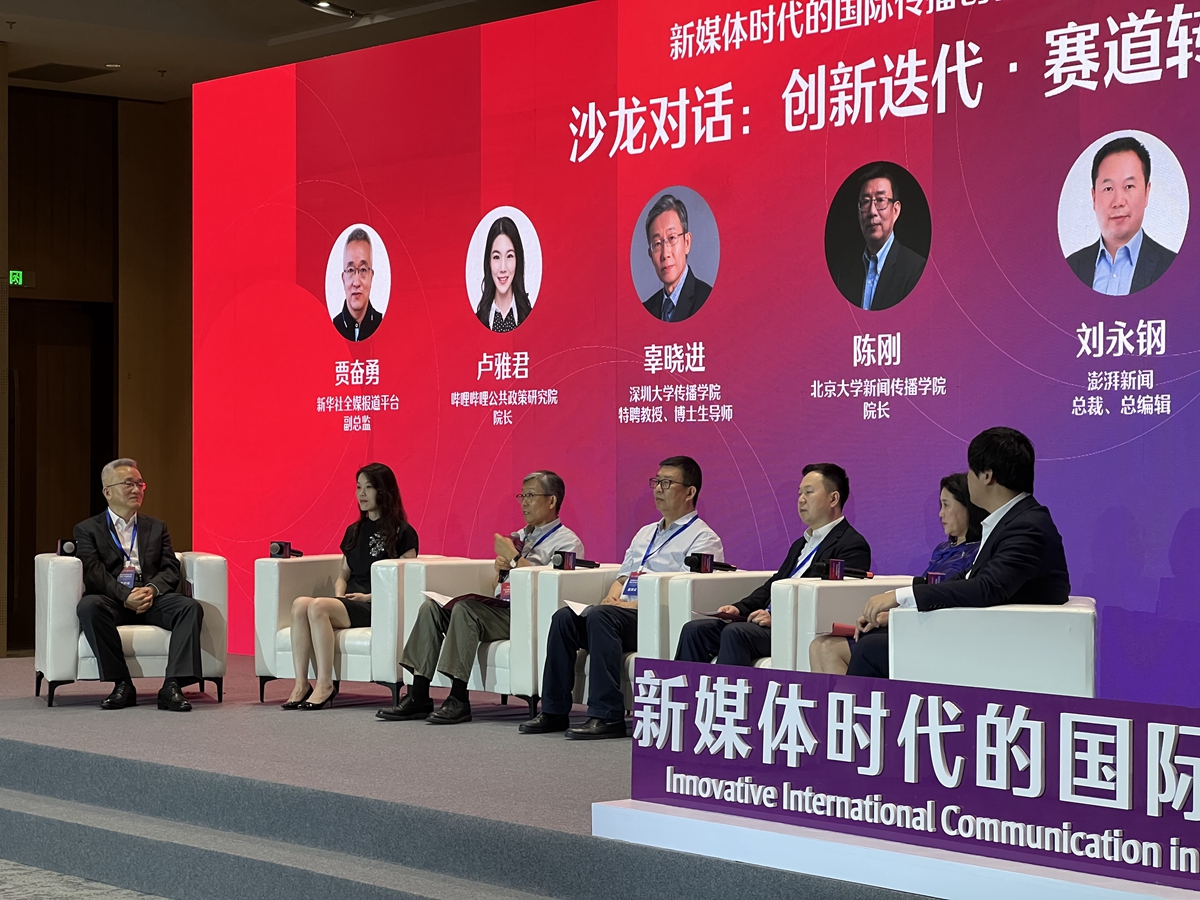Journalists embrace new era with innovative mindset
Writer: Song Yingwen | Editor: Yu Fanfan | From: Shenzhen Daily | Updated: 2023-06-09

Experts and journalists at a salon Thurday as part of the Sub-forum on the Innovative International Communication in the Age of New Media. Lin Jianping
People from all walks of life, including Chinese journalists, are experiencing both the joys and pains of the latest breakthroughs in AI. While scholars view a new era of endless opportunities in creativity and communication, veteran journalists emphasize the importance of telling human-interest stories in ways that appeal to modern audiences.
“Sticking to the original aspiration of the media while embracing the AI era, this is our motto,” said Liu Yonggang, president and editor-in-chief of The Paper, a Shanghai-based online media platform.
Liu was among a group of distinguished experts and journalists from some of China’s leading media outlets, social media platforms and research institutes who gathered at a salon Thursday as part of the Sub-forum on the Innovative International Communication in the Age of New Media of the first Forum on Building up China's Cultural Strength. The group shared their insights on how the media industry can best adapt to the new age of technology and international communication.
Chen Gang, dean of Peking University’s School of Journalism and Communication, an expert in brand marketing and international communication, described the breakthroughs in AI as “groundbreaking.” “The emergence of ChatGPT brought digitalization to a more advanced level. It will greatly enhance the efficiency in news reporting, but at the same time propel changes in the existing concepts and models in international communication,” Chen said. Chen is now leading a research in exploring reader-targeted precise communication based on big data.
The Paper, currently under Liu’s management, marked the transition of a Chinese traditional media outlet to mobile and internet-based media organization in July 2014. The internet-based media organization later introduced AIGC-products Fact Paper, which targets online rumors and reports that contain faulty information; and IP Shanghai, an online platform for sharing resources related to the city. “We have always been an active player in applying technology in journalism,” Liu said. “But still telling human-interest stories is at the core of our heart.” The Paper has over 1 million global users.
Bilibili, an online video-sharing platform that enjoys the reputation as China’s YouTube, is a big winner in this field. In 2019, the leading video community for the youth in China curated the first ever New Year’s Eve gala for younger generations in China. The spectacle has since become a signature cultural event for the young Chinese audiences.
“Modern young people in China today showcase their unique qualities by neither imitating others nor repeating themselves,” according to Lu Yajun, president of the Public Policy Research Institute of Bilibili. “They dare to tell stories in unconventional ways, which precisely embodies the cultural confidence that should be present in international communication,” Lu said.
The platform is also a magnet for international contributors as well, according to Lu. The platform is witnessing the participation of a growing number of expat content providers, becoming one of the online communities that boasts of the largest number of foreign uploaders. South Korean Acapella group MayTree joined Bilibili in April 2021, and now has over 2 million followers, and American animator Alan Becker joined Bilibili in 2020 and now has over 1 million followers. “A growing number of foreign vloggers use Bilibili as their first choice for content release, and YouTube for secondary distribution. This strongly illustrates China’s cultural and soft power,” Lu said.